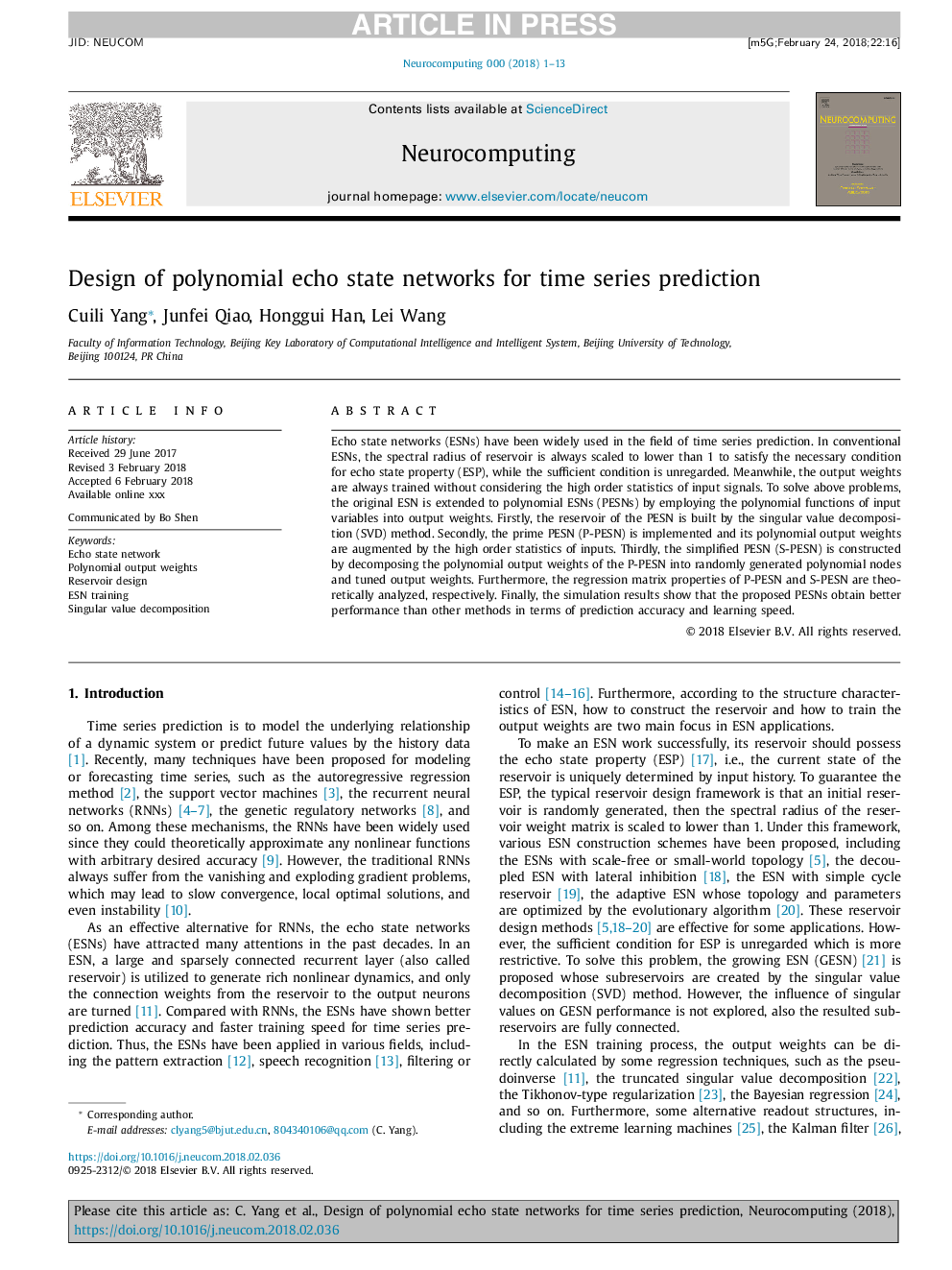| Article ID | Journal | Published Year | Pages | File Type |
|---|---|---|---|---|
| 6864265 | Neurocomputing | 2018 | 13 Pages |
Abstract
Echo state networks (ESNs) have been widely used in the field of time series prediction. In conventional ESNs, the spectral radius of reservoir is always scaled to lower than 1 to satisfy the necessary condition for echo state property (ESP), while the sufficient condition is unregarded. Meanwhile, the output weights are always trained without considering the high order statistics of input signals. To solve above problems, the original ESN is extended to polynomial ESNs (PESNs) by employing the polynomial functions of input variables into output weights. Firstly, the reservoir of the PESN is built by the singular value decomposition (SVD) method. Secondly, the prime PESN (P-PESN) is implemented and its polynomial output weights are augmented by the high order statistics of inputs. Thirdly, the simplified PESN (S-PESN) is constructed by decomposing the polynomial output weights of the P-PESN into randomly generated polynomial nodes and tuned output weights. Furthermore, the regression matrix properties of P-PESN and S-PESN are theoretically analyzed, respectively. Finally, the simulation results show that the proposed PESNs obtain better performance than other methods in terms of prediction accuracy and learning speed.
Related Topics
Physical Sciences and Engineering
Computer Science
Artificial Intelligence
Authors
Cuili Yang, Junfei Qiao, Honggui Han, Lei Wang,
